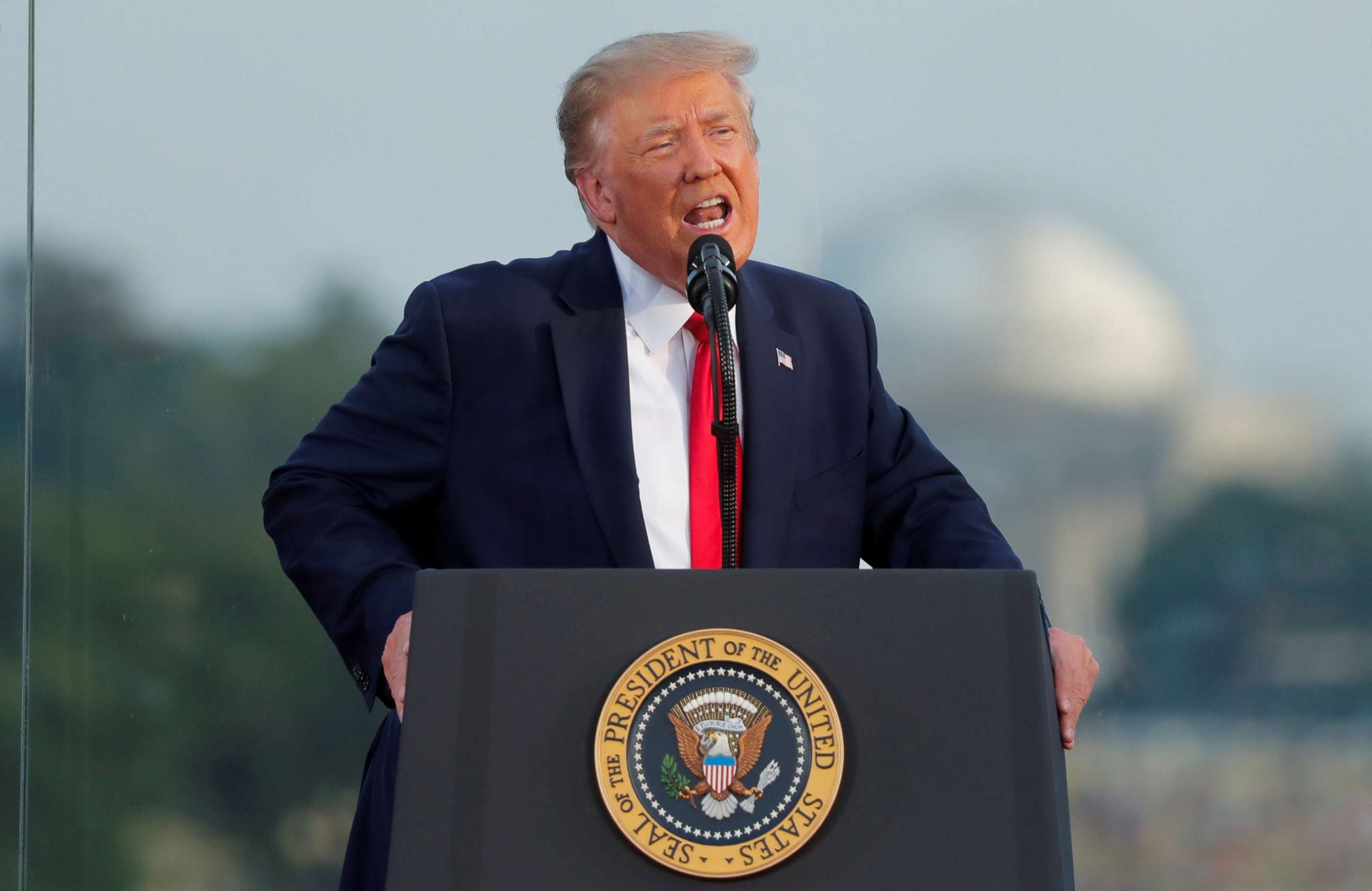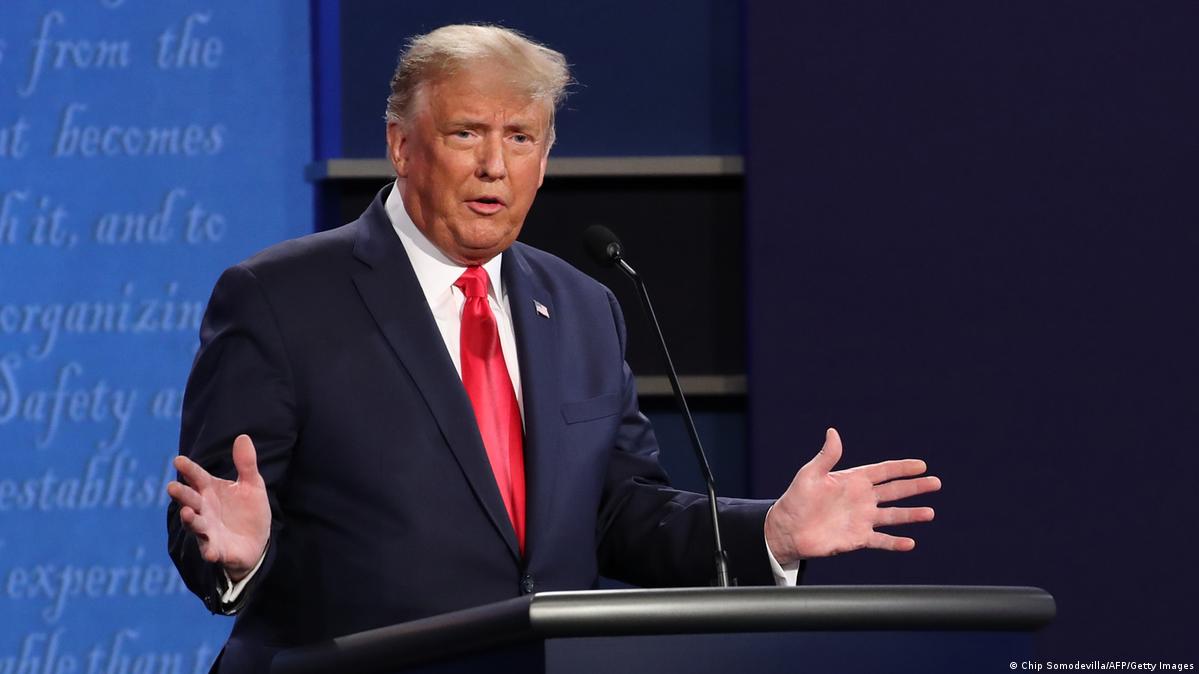Donald Trump, the 45th President of the United States, has consistently framed presidential politics as a theatrical arena where allies fervently support his quest to reclaim the White House, juxtaposed with adversaries actively working to thwart his political resurgence.
This narrative of a divided political landscape, with loyal supporters and perceived antagonists, has been a hallmark of Trump’s rhetoric. However, in this political drama, Trump often emerges as his own worst enemy. One illustrative example is his stance on mail-in ballots.
During the historic 2020 election, marked by the challenges posed by the COVID-19 pandemic, Trump vehemently and falsely decried the integrity of the mail-in voting process.
Despite a surge in mail-in ballots due to the public health crisis, Trump’s pre-election claims of corruption cast a shadow over the legitimacy of the results.

Trump (Credits: ABC News)
Trump’s towering ego, a characteristic that seemingly conceals a profound sense of inadequacy, impedes his ability to accept a straightforward truth – he lost the 2020 election to Joe Biden.
The refusal to acknowledge this reality has become a recurrent theme in Trump’s post-presidential activities, manifesting in his public statements and political engagements.
This reluctance to accept defeat was palpable during a recent campaign event in Michigan, a key swing state that played a pivotal role in Trump’s electoral fortunes.
Despite Michigan slipping from his grasp in 2020, Trump, in a move to recalibrate the narrative, chose to revisit the contentious topic of mail-in voting.
During this event, he not only reaffirmed his skepticism about the process but also pledged to dismantle mail-in voting entirely if he were to emerge victorious in the upcoming election.
This strategic move to position mail-in voting as a contentious issue aligns with Trump’s broader narrative of an embattled hero fighting against a system he claims is rigged against him.
By targeting mail-in ballots, Trump seeks to galvanize his political base, playing into the narrative of a rigged electoral system and casting himself as the valiant defender of electoral integrity.
However, this narrative is not without its paradoxes. While Trump positions himself as the guardian of fair elections, his actions and rhetoric contribute to a broader erosion of confidence in the democratic process.
The relentless assault on the legitimacy of the 2020 election, coupled with ongoing efforts to challenge its outcome, has sown seeds of doubt among his supporters about the very foundation of the American electoral system.
Beyond the immediate political implications, Trump’s stance on mail-in voting raises questions about the future of this voting method in American democracy. The COVID-19 pandemic prompted a surge in mail-in ballots, providing a convenient and safe option for many voters.
Trump’s sustained criticism may contribute to a broader skepticism surrounding the efficacy and fairness of mail-in voting, potentially shaping the discourse on electoral reforms in the years to come.
As Trump navigates the political landscape, characterized by a complex interplay of allies and adversaries, his approach to issues like mail-in voting underscores the enduring impact of his presidency on the nation’s political narrative.
The dichotomy of Trump as the heroic defender and his own antagonist continues to shape the contours of American politics, leaving an indelible mark on the ongoing discussions about the integrity of the electoral process.
In this unfolding drama, the script remains uncertain, but one thing is clear – Donald Trump remains a central and polarizing figure in the American political landscape.























